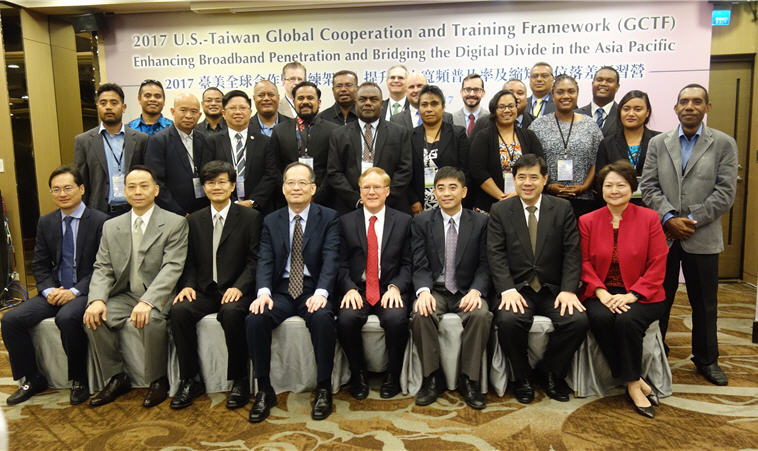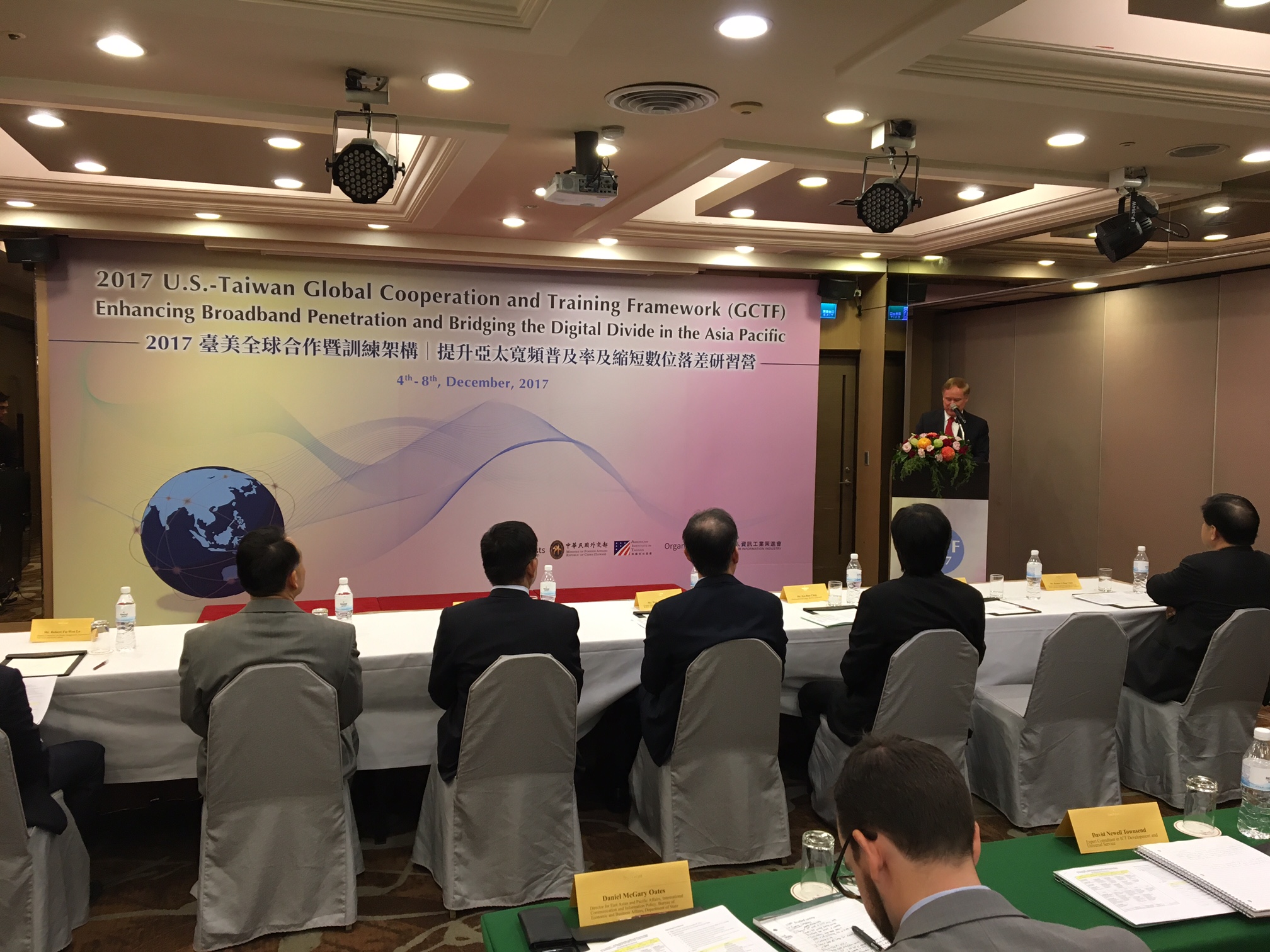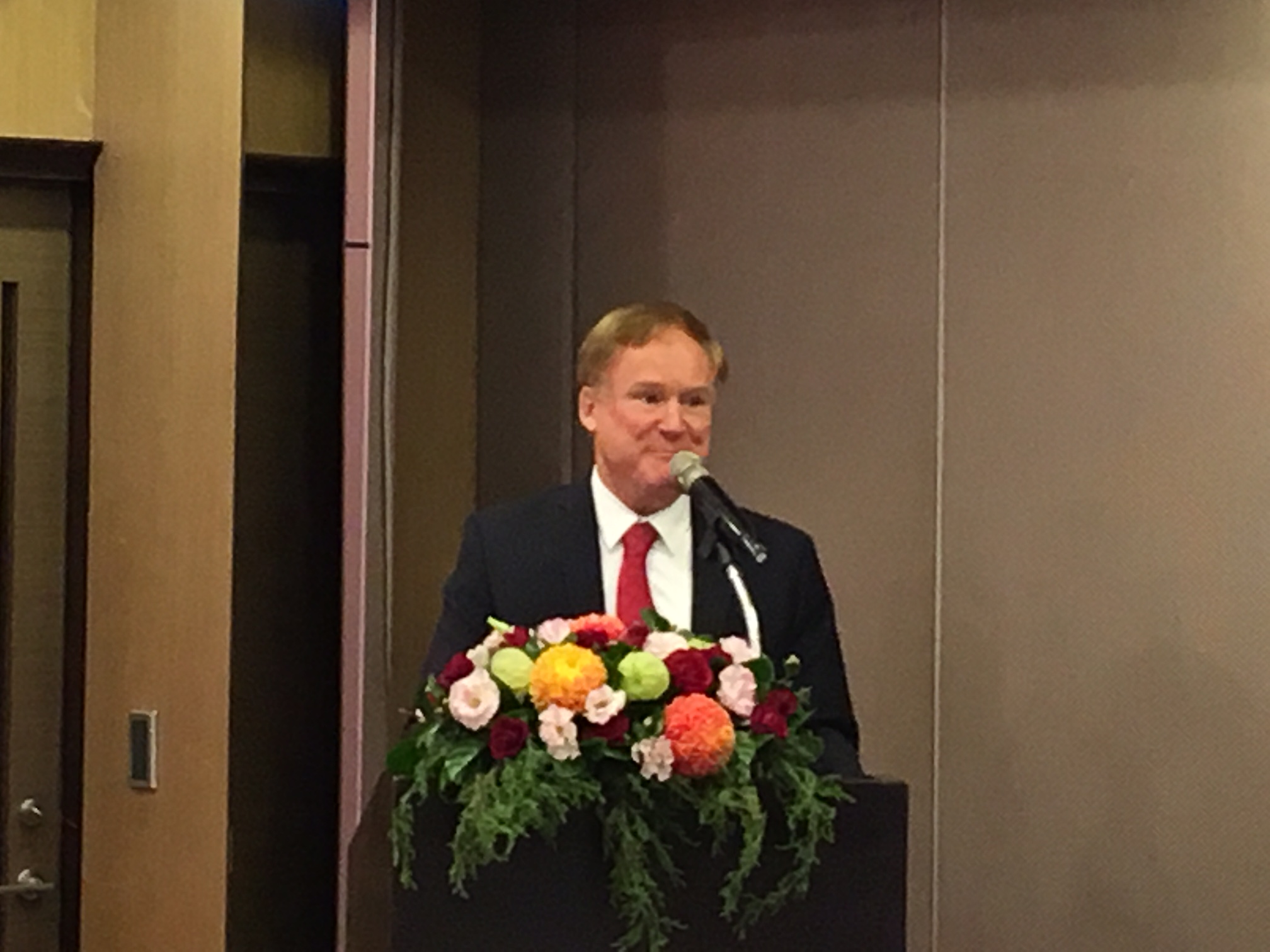Remarks by AIT Acting Director Robert Forden at the Global Cooperation and Training Framework Workshop
“Bridging the Digital Divide in the Asia-Pacific”
(As Prepared for Delivery)
Deputy Foreign Minister Chang, Ambassador-at-Large for Digital Inclusion Chen, Deputy Minister of the National Development Council Chiou, President of the Institute for Information Industry Yu, ladies and gentlemen, good morning!
I am happy to be here today to discuss this important topic. When we think about how we live our modern lives, it is shocking to realize approximately 3.6 billion people, or close to half of the world’s total population, still does not have access to the internet. The vast bulk of the growth in the global economy since the financial crisis has occurred in the internet sector, and the gap between those who are part of the internet economy and those who are not is growing at an alarming rate.
Closing this “digital divide” is not just a question of social fairness, it is also smart economics. There is no denying that the global economy and society are moving increasingly on-line. A study by the World Bank found that for every 10 percent increase in internet penetration, economic growth increased by 1.2 percent. There are very few policy tools governments have that can promise similar dividends.
The World Economic Forum has found that expanding internet access and promoting digital inclusion are particularly beneficial to women. As they put it, if we want to close the gender gap, we need to fix the digital divide. Through greater internet access, women are able to launch businesses, negotiate better prices, and gain better access to health care and educational resources for their families.
Expanded internet access and greater digital inclusion are also the foundation for open, cohesive democracies in the digital age. A free and open internet enables public debate about political and social priorities, enabling voters to stay informed and policy makers to benefit fully from the collective wisdom of their societies.
When it comes to expanding broadband access to remote areas and promoting digital inclusion for underserved areas, Pacific Island nations face some of the greatest challenges of anywhere in the world. The United States and Taiwan have organized this training as part of our on-going cooperation under the Global Cooperation and Training Framework, or GCTF. The GCTF is designed to combine the strengths of our two economies to tackle global challenges and to share our experiences for the benefit of our partners around the world. This training is also taking place as an outcome of the Digital Economy Forum, which we launched two years ago to bring the U.S.-Taiwan economic relationship into the digital age. Expanding our digital partners – as we are doing here today – is an essential component of that effort.
Towards this end, we have brought out three experts from the United States to assist with this training. Dan Oates of the Department of State is the lead officer within the U.S. government on digital economy and broadband policy for the Pacific Islands and Taiwan. Troy Tanner is the Deputy Chief of the U.S. Federal Communications Commission’s International Bureau. And David Townsend is an expert consultant in ICT development who has worked throughout the world on these questions. Together with their Taiwan counterparts, we have no doubt this training will present the world’s best practices on bridging the digital divide.
In closing, I encourage you all to keep in contact with one another after the training, share your experiences – both your successes and the lessons learned from your failures. The best sign of success of this training is actually what comes next – how all of you will continue to work together to achieve the common goal of bridging the digital divide.
Once again, I thank all of you for coming. I thank Taiwan’s Ministry of Foreign Affairs for our continued close cooperation in organizing these trainings, the Institute for the Information Industry for implementing this workshop, and our American guest speakers for coming all this way.
Enjoy the training!
















![Video Thumbnail [Recovered]-01](../wp-content/uploads/sites/269/Video-Thumbnail-Recovered-01-1-750x450.jpg)






